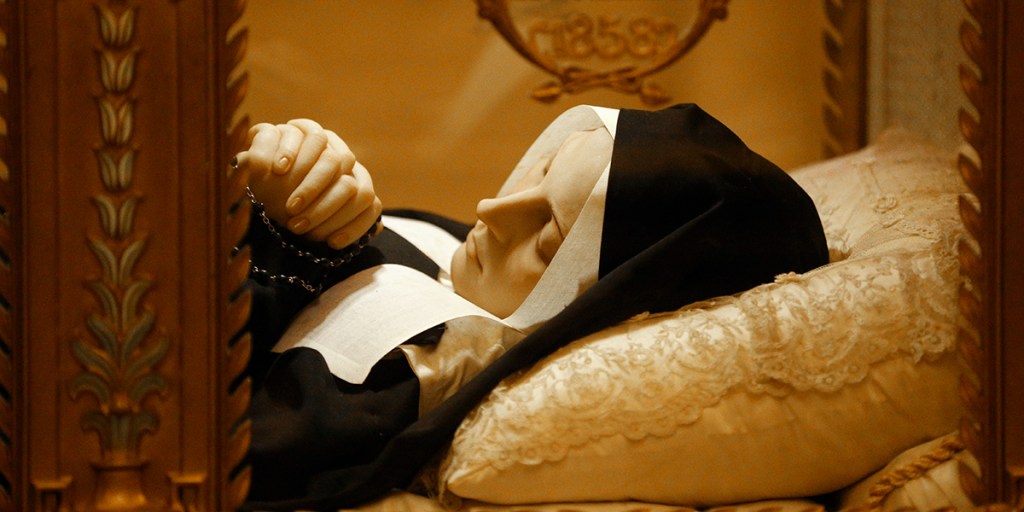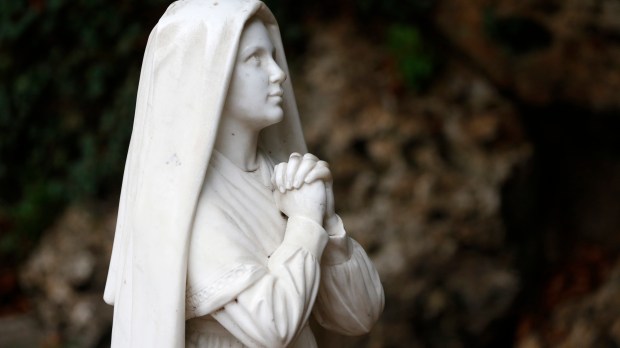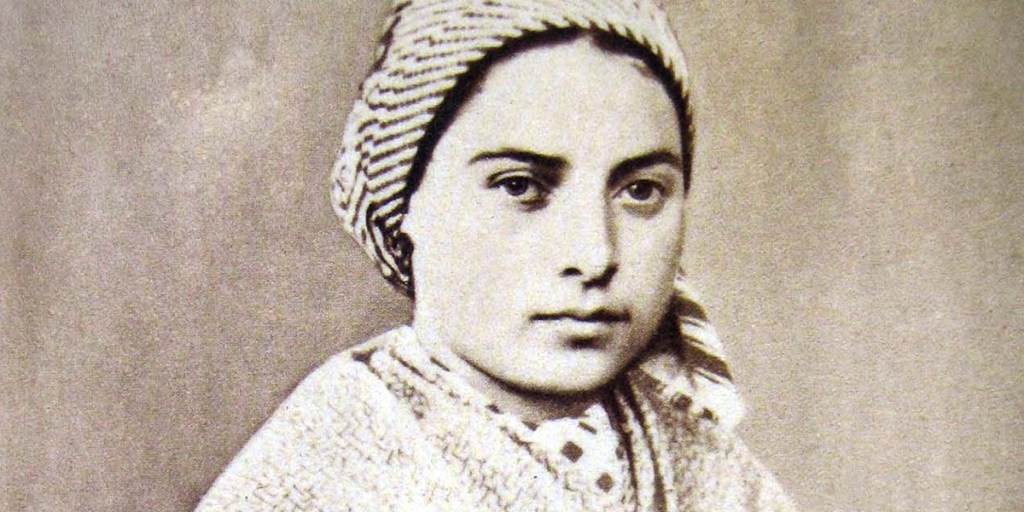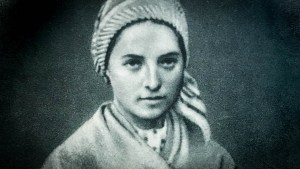On October 30, 1867, at the convent of the Daughters of Charity in Nevers, forty-four novices took their solemn vows. These young girls would become professed members of the community, then receive their assignments and be dispersed among the houses of the congregation. The bishop called them one by one. Just one candidate remained fixed in her seat: she had been forgotten or worse…
Bishop Forcade leaned over to the Superior General and asked: “What about our Sister Marie-Bernard?” “Your Excellency, she’s good for nothing!” An icy silence hung in the air; Sr. Marie-Bernard rose to her feet, scarlet. Kneeling before the bishop, she heard herself assigned this extravagant assignment: nowhere.
“Good for nothing”
The bishop leaned over and asked, “Is it true, my poor child, that you’re good for nothing?” “Yes, Your Excellency.” Then, her voice broke as she said, “I told you that at Lourdes, and you told me it didn’t matter.”
Upset that neither the bishop nor the young girl were playing the role she had assigned them, Mother Josephine said, “Your Excellency, if you like, we can keep her here at the Mother House out of charity, and employ her in the infirmary, for cleaning and making herbal teas. As she’s always ill, it’ll be just the thing for her!”
Bishop Forcade turned to the young religious and said gently, “As for me, Sister, I give you the task of prayer.”
Sr. Marie-Bernard withdrew, having understood nothing more than the other nuns about the public humiliation that had just been inflicted on her. Apart from her superiors, no one knew that this was in fact an exceptional honor. It was a way of keeping her at the Mother House. This was contrary to custom, as being at the seat of governance of the community was usually the crowning achievement of a lifetime of service. So, it was proof of the interest shown in this tiny little woman, just 4’8” tall.
Sickly but spiritually gifted
Was Sr. Marie-Bernard good for nothing? Of course, she’d been asthmatic since childhood, a condition that until the last few months hid the tuberculosis that had been eating away at her, and she spent her time in the infirmary. Just a year ago, her superiors had thought that a more serious attack was going to kill her. Panicking at the idea of losing her without having ratified her membership of the congregation, they rushed to admit her as professed in articulo mortis. The next day, however, noting her recovery, they took back the black cheesecloth veil and the profession cross, as required by the rule.
No one — and she was the only one who did not know it — would send her away, even if she was received “without dowry,” “out of charity” as Mother Josephine would say. In fact, all the congregations had vied with each other for the glory of receiving her…
Bullying and reproaches
Sr. Marie-Bernard was Bernadette Soubirous, who had seen the Virgin Mary eighteen times between February 11 and July 16 1858. The apparitions at Lourdes were so famous, and the pilgrimage so popular, that having Bernadette in the community “would not be without benefit,” to use Mother Josephine’s words a short while earlier, when she was afraid that rivals would “come and steal” her privileged novice.
But once they were certain that Bernadette would stay with them, the superiors seemed to inflict nothing but bullying and reproaches on her. This was to mortify her, apparently, and to help her sanctify herself — all done in good conscience, no doubt… But her treatment also likely sprang from the fact that this girl with her hesitant French (her first language was Occitan), who could barely read and write, and who had a strong character, didn’t fit in with the idea that these middle-class women had of a confidante of Our Lady… Why did the Blessed Virgin stoop so low as to choose this rude and uneducated peasant girl, when there were so many “wise and virtuous” religious? It certainly makes one wonder…
The treatment that Bernadette received from her superiors wasn’t because she disappointed them. The superiors were intelligent enough to appreciate the virtue, piety, and silent acceptance of crosses and suffering that characterized her. It was principally because they didn’t understand her and, as time went by, would have less and less desire to understand her.
One day, after Sr. Marie-Bernard’s death, when people started talking about starting her cause for beatification, her former novice mistress, who insisted on describing her as “an ordinary nun,” tried to stand in the way, muttering, “At least wait until I’m dead.”
The devil prowls but is defeated
What was Bernadette’s life like in Nevers? “Humiliations and mortifications” pretty much sums up her daily life… But from the moment she entered the convent, which she preferred to the outside world, and even to marriage, she chose the cross and its sorrows, which she endured, saying she was enduring it up “for the big sinner.”
This did not prevent her from sanctifying herself; on the contrary. Assigned to the infirmary, she had marvelous compassion and gentleness. She dressed wounds without repugnance, assisted the dying, and cleaned the bodies of the deceased — at least for as long as she had the strength.
In 1875, her tuberculosis invaded her bones. It caused her excruciating suffering and condemned her to remain bedridden, useless: her nightmare. The bedsores added to her ordeal. At the beginning of 1879, she asked that the pious images adorning her alcove and nourishing her meditations be removed. In explanation, she pointed to her crucifix: “This one is enough for me.”
Spiritual anguish afflicted her in addition to her physical pains. Bernadette was told so many times that she had responded poorly to the graces she had received, that she became convinced of her unworthiness, and almost of her damnation… “I’m afraid, I’m so afraid! I’ve received so many graces and I’ve profited so little from them!” she moaned.
The devil prowled about, but could not prevail against the incredible resistance of this tiny woman. The Immaculate would not let him triumph over her confidante. “I’m ground like a grain of wheat,” sighed the daughter of the miller of the Moulin Boly. But if the grain doesn’t die, it can’t bear fruit, and Bernadette understood that.
Her last words
Around midday on April 16, 1879, the community saw that her death was imminent. To the sister who suggested she ask Our Lady for “consolations,” she replied: “No, no consolations. But strength and patience.” She died at 3pm on Easter Wednesday. Her last words echo those of the crucified Christ she loved so much: “I thirst…”
“I don’t promise to make you happy in this world, but in the next,” the Virgin had once told her. Now, for all eternity, Bernadette sees her face to face.





